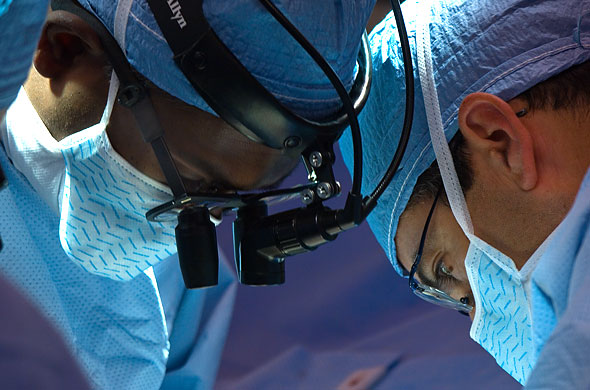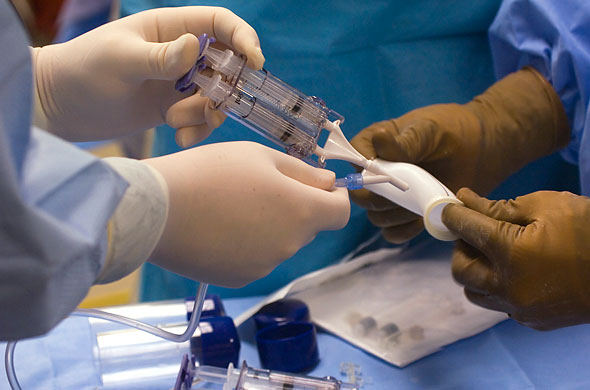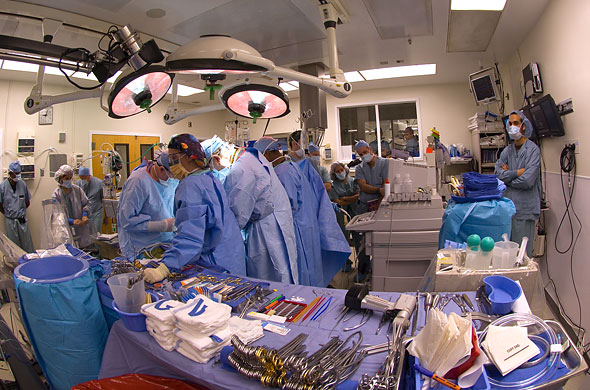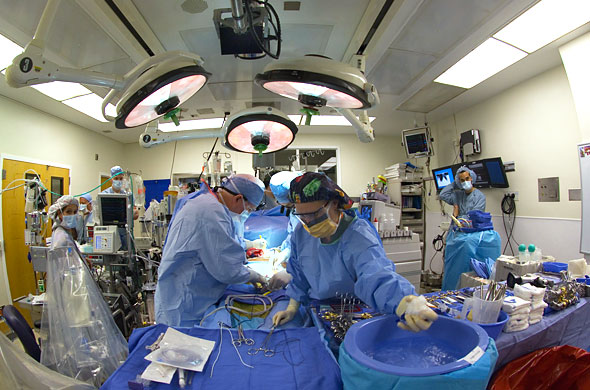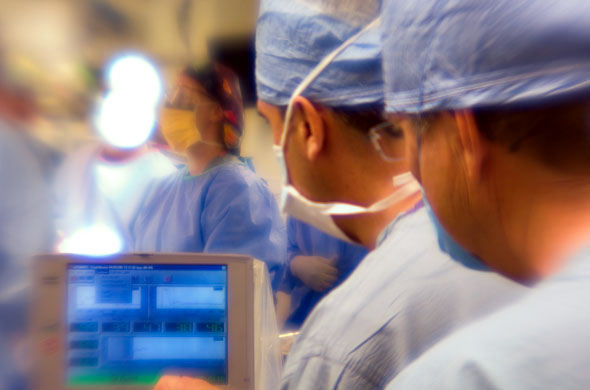A success that couldn’t wait
Luke Giannini knew that the odds were stacked against him. With a strong family history of heart disease, at just 12 years old he began seeing a cardiologist. Until his early 20s, Giannini thought he may have dodged the genetic bullet. But at the age of 25, that thought changed instantly.
“I was just working on my boat one day, like I always did, when suddenly things went south very fast,” he said.
He lost consciousness and was rushed to a community hospital, where doctors installed a defibrillator. Within a year, the device was activating so frequently that it had to be replaced with a pacemaker. After just a few days, it became apparent that what he needed was a new heart.
“My heart was in total failure, so I couldn’t be put on a waiting list for a real heart,” he said. “There simply wasn’t any time for that.” With no time to waste, VCU Medical Center cardiac surgeons performed a total artificial heart implant on Giannini in November 2008, and just weeks later, transplanted a permanent heart. Within six months, Giannini returned to boating, working on his truck and even riding roller coasters.
In cases like Giannini’s, total artificial heart implantation fills the critical void between heart failure and heart transplant.
“Transplants don’t happen on a predictable basis, so this technology enables these very ill patients to wait for transplant and actually get healthier while doing so,” said Vigneshwar Kasirajan, M.D., chairman of cardiothoracic surgery and director of heart transplant, heart-lung transplantation and mechanical circulatory support.
In 2006, the VCU Pauley Heart Center’s cardiac surgery team, led by Kasijaran, performed the first artificial heart implant on the East Coast. The SynCardia temporary Total Artificial Heart is the only FDA-approved device used as a bridge to human heart transplant for patients like Gianinni.
“The whole goal of this device is that it takes someone who is really ill and at imminent risk of death, and we put the device in and their quality of life is excellent,” Kasijaran said.
Following the first implant six years ago, VCU Medical Center doctors expected to perform just a few per year, but that target grew rapidly with the program’s success. Over the next three years, the Pauley Heart Center claimed one of the best success rates nationwide, with an 85 percent survival rate among patients who underwent a temporary heart procedure and a more than 95 percent survival rate among those who received donor hearts. The program is now one of the most prolific in the nation, performing nearly 60 mechanical heart implants since its inception.
The medical center also led the way in technology to power the artificial heart. When Giannini received his implant, he spent several weeks tethered to a 400-pound machine known as “Big Blue,” which powers the SynCardia heart. In 2010, VCU served as the lead institution in a national clinical trial of the Freedom Driver, a 14-pound portable power source that’s small enough to fit in a backpack. Giannini was called back to VCU to witness the advancement.
“It was just amazing to me that VCU — right here in Richmond — was available to do this,” he said. “It’s absolutely amazing that we have this technology.”
